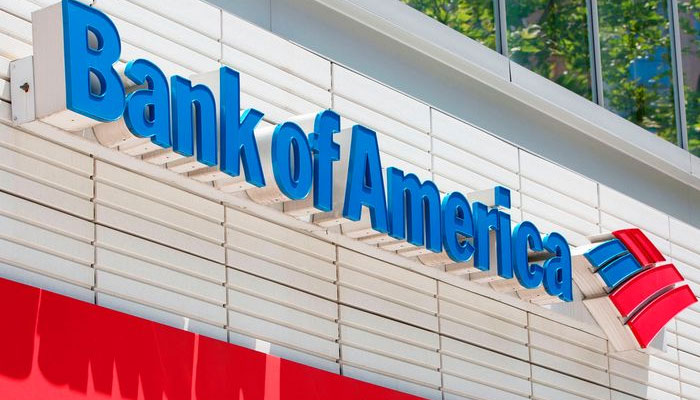PM’s roadmap
Bank of America now believes that it is a good time to invest in bonds issued by Pakistan
The Bank of America Corporation, the second-largest banking institution in the United States, has raised its recommendation for Pakistan dollar bonds to overweight from market-weight, citing falling political uncertainty after the elections.
What does this signify? Essentially, this means Bank of America now believes that it is a good time to invest in bonds issued by Pakistan. Bank of America is also suggesting people allocate a larger portion of investment portfolios to Pakistani bonds compared to other options.
Question: What has prompted Bank of America to make the recommendation it is making? Answer: Bank of America believes that the recent Pakistani elections made the political situation less chaotic, which is good for the economy and makes Pakistani bonds less risky.
Question: What might occur next? Answer: Agencies that rate the risk of bonds might increase Pakistan's rating. A heightened rating would signify greater confidence in Pakistan's ability to repay its loans, subsequently bolstering investor trust.
Bank of America’s endnote states: “We note remaining political tail risks as the market may closely monitor Cabinet appointments, evaluating key members on their ability to deliver on IMF conditions.”
Question: What is Bank of America saying? Answer: Investors are watching who will be in important government positions, like the minister of finance. Yes, politics still matter; political appointments in Pakistan can still affect the economy and make investors nervous. Yes, skills are key. Investors want to see if the new appointments have the experience and skills to make tough decisions and stick to their promises.
Not to forget, Pakistan still has to work with the IMF to finance its external financing requirement of $24.965 billion. The IMF will have tough conditionalities, and investors want to make sure the new government is serious about following them.
Question: What’s the bottom line? Answer: It’s not a done deal yet. Investors are happier with Pakistan, but before they're fully convinced, they want to see who's in charge and if the new team can keep the economy on track.
Yes, Bank of America's endorsement signals positive prospects for Pakistan's economy. Yes, the true litmus test lies in the meticulous selection of key government positions, notably the minister of finance. Remember, investors anxiously await the unveiling of the new team. Remember, investors will be assessing the new team's strategic acumen and ability to navigate the intricate web of IMF conditionalities.
The prime minister must keep in mind that investors will be carefully evaluating the incoming team members for three pivotal attributes: competence, resilience in the face of challenges, and unwavering dedication to their roles and responsibilities.
The prime minister would have to do four other things: prioritize transparency in decision-making; foster a conducive environment for foreign investment; demonstrate a commitment to fiscal responsibility; and demonstrate a commitment to fiscal responsibility.
The prime minister would have to prioritize transparency in decision-making. The prime minister would have to foster a conducive environment for foreign investment. The prime minister would have to demonstrate a commitment to fiscal responsibility. And, the prime minister would have to ensure efficient use of public resources.
The writer is a columnist based in Islamabad. He tweets/posts @saleemfarrukh and can be reached at: farrukh15@hotmail.com
-
 Katherine Schwarzenegger Shares Sweet Detail From Early Romance Days With Chris Pratt
Katherine Schwarzenegger Shares Sweet Detail From Early Romance Days With Chris Pratt -
 Jennifer Hudson Gets Candid About Kelly Clarkson Calling It Day From Her Show
Jennifer Hudson Gets Candid About Kelly Clarkson Calling It Day From Her Show -
 Princess Diana, Sarah Ferguson Intense Rivalry Laid Bare
Princess Diana, Sarah Ferguson Intense Rivalry Laid Bare -
 Shamed Andrew Was With Jeffrey Epstein Night Of Virginia Giuffre Assault
Shamed Andrew Was With Jeffrey Epstein Night Of Virginia Giuffre Assault -
 Shamed Andrew’s Finances Predicted As King ‘will Not Leave Him Alone’
Shamed Andrew’s Finances Predicted As King ‘will Not Leave Him Alone’ -
 Expert Reveals Sarah Ferguson’s Tendencies After Reckless Behavior Over Eugenie ‘comes Home To Roost’
Expert Reveals Sarah Ferguson’s Tendencies After Reckless Behavior Over Eugenie ‘comes Home To Roost’ -
 Bad Bunny Faces Major Rumour About Personal Life Ahead Of Super Bowl Performance
Bad Bunny Faces Major Rumour About Personal Life Ahead Of Super Bowl Performance -
 Sarah Ferguson’s Links To Jeffrey Epstein Get More Entangled As Expert Talks Of A Testimony Call
Sarah Ferguson’s Links To Jeffrey Epstein Get More Entangled As Expert Talks Of A Testimony Call -
 France Opens Probe Against Former Minister Lang After Epstein File Dump
France Opens Probe Against Former Minister Lang After Epstein File Dump -
 Last Part Of Lil Jon Statement On Son's Death Melts Hearts, Police Suggest Mental Health Issues
Last Part Of Lil Jon Statement On Son's Death Melts Hearts, Police Suggest Mental Health Issues -
 Leonardo DiCaprio's Girlfriend Vittoria Ceretti Given 'greatest Honor Of Her Life'
Leonardo DiCaprio's Girlfriend Vittoria Ceretti Given 'greatest Honor Of Her Life' -
 Beatrice, Eugenie’s Reaction Comes Out After Epstein Files Expose Their Personal Lives Even More
Beatrice, Eugenie’s Reaction Comes Out After Epstein Files Expose Their Personal Lives Even More -
 Will Smith Couldn't Make This Dog Part Of His Family: Here's Why
Will Smith Couldn't Make This Dog Part Of His Family: Here's Why -
 Kylie Jenner In Full Nesting Mode With Timothee Chalamet: ‘Pregnancy No Surprise Now’
Kylie Jenner In Full Nesting Mode With Timothee Chalamet: ‘Pregnancy No Surprise Now’ -
 Laura Dern Reflects On Being Rejected Due To Something She Can't Help
Laura Dern Reflects On Being Rejected Due To Something She Can't Help -
 HBO Axed Naomi Watts's 'Game Of Thrones' Sequel For This Reason
HBO Axed Naomi Watts's 'Game Of Thrones' Sequel For This Reason




